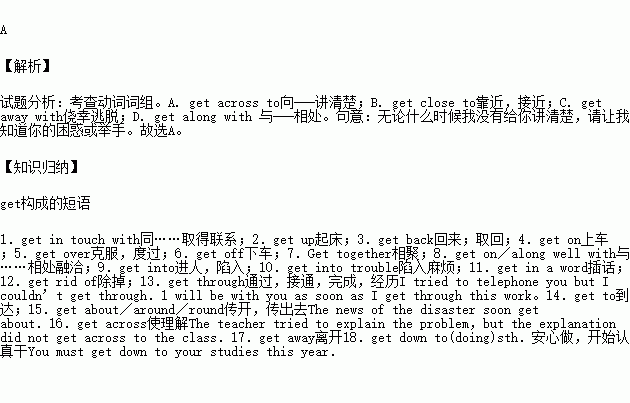题目内容
Whenever I don’t ______ you, please show your puzzlement or put your hand up.
A. get across to B. get close to
C. get away with D. get along with
 小学生10分钟口算测试100分系列答案
小学生10分钟口算测试100分系列答案书面表达
请根据内容提示,用英语Life in Senior Two 为题写一篇短文,叙述高二生活。
总体印象 | 激动、快乐、辛苦 |
实际生活 | 时间紧,常熬夜;作业多,考试多,克服困难,不断进步 |
生活态度 | 心中有梦,充满信心 |
注意:1.词数:120字左右;可适当添加细节,以使行文连贯;勿逐字翻译。
2.不能使用真实姓名和学校名称。
Life in Senior Two
________________________________________________________________________________________
________________________________________________________________________________________
________________________________________________________________________________________
________________________________________________________________________________________
________________________________________________________________________________________
________________________________________________________________________________________

